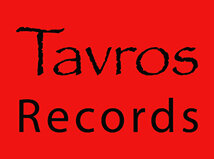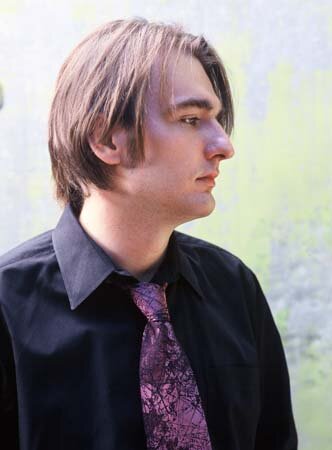Frédéric Chopin
Solo Piano Works
Vassily Primakov
This 72-minute CD from Tavros Records features Russian pianist Vassily Primakov performing Chopin’s most beloved piano works, including the Fantaisie in F minor, Barcarolle, Scherzo in in C-sharp minor, Berceuse, and all four Ballades.
“The Berceuse is exquisite, and the four Ballades have a flowing romantic ardour,
balanced with moments of great delicacy, that is very appealing.”
Read more about the artists and the composer below.
Audio CD $16.97
Please click the titles below to hear samples from the CD.
ABOUT THE ARTIST
Vassily Primakov made his New York concerto debut in May 2004 at Alice Tully Hall with Rachmaninoff’s second piano concerto, and a New York Times review exclaimed that it was a “fiery performance…with bold, expressive phrasing and dramatic commitment that brought the audience to its feet.”
Audience uproar has become a hallmark of Primakov performances, which incorporate dazzling, nearly superhuman passion with sensitive poetry. In Santa Barbara, California, where Mr. Primakov has been adopted as a “musical son,” no one will forget his riveting performance of the final movement of the Rachmaninoff third piano concerto during the Music Academy of the West’s 1997 “Concerto Night.” It was a musical tour de force so dazzling that the audience exploded, and local patrons of the arts immediately took Mr. Primakov to their hearts. The pianist returned to Santa Barbara soon after to perform the entire concerto with the Santa Barbara Symphony orchestra.
Vassily Primakov began his U.S. career after capturing First Prize in the 2002 Young Concert Artists International Auditions. His debut recitals in the Young Concert Artists Series in New York at the 92nd Street Y, sponsored by the Peter P. Marino Prize, as well as in Kennedy Center, Washington D.C., and Boston’s Isabella Stewart Gardner Museum, immediately brought him rave reviews. Mr. Primakov has performed recitals and as concerto soloist throughout the States, including appearances with the San Diego Symphony, the Maryland Symphony, the Utah Symphony, the Westchester Philharmonic and the Yakima Symphony among many others.
At the YCA Auditions, Mr. Primakov was awarded many special prizes, including the Slomovic Orchestral Prize, the John and Esther Browning Memorial Prize, the Paul A. Fish Prize, and appearances with the La Jolla Chamber Music Society and at the Usedom Festival in Germany. He won prizes in the Cleveland International Piano Competition (1999) as well as the Silver Medal and Audience Prize at the 2002 Gina Bachauer International Artists Piano Competition. Mr. Primakov is also the recipient of a Susan W. Rose Career Grant, and today performs widely across the United States in solo recital and with orchestra.
Born in Moscow in l979, Mr. Primakov entered the American music scene in 1997, at the age of 17, as a student of Jerome Lowenthal at The Juilliard School in New York and later that summer in Santa Barbara at the Music Academy of the West. His early music studies were with his mother, Marina Primakova in Moscow. At the age of 11, he entered Moscow’s Central Special Music School, and during these years, from 1990 to 1996, he played concerts in Russia, France, Switzerland, Germany, and Romania. By the time he was 15 years old, Mr. Primakov had won First Prize in the Rachmaninoff International Young Artist Competition and the Tchaikovsky Young Artist Competition in Russia.
In 1999, Primakov won second prize at the Cleveland International Piano Competition, and in 2001 he was a semi-finalist in the Van Cliburn Competition. Upon hearing Primakov’s performance of “La Valse” at the competition, Van Cliburn himself said “Prodigious technique, really wonderful,” with a “look of sheer rapture on his face.” Primakov then won both the Silver Medal and Audience Prize at the 2002 Gina Bachauer International Piano Competition. In 2007, he was honored by the Classical Recording Foundation with their Young Artist of the Year Award. His disc of 21 Mazurkas by Chopin was named a "Best of Year" by National Public Radio (2009). In 2011, along with his duo partner Natalia Lavrova, Primakov launched a new Record Label LP Classics. Their first release was Arensky's Suites for Two Pianos, as well as first volume of Live Performances of his former teacher Soviet pianist Vera Gornostayeva. The LP Classics label has gone on to build a prodigious catalogue of great music. Primakov lives in New York City.
ABOUT THE COMPOSER
Frédéric Chopin (1810-1849) is the only one of the world’s great composers whose music is devoted entirely to the piano. Of the 169 works he created in his tragically short lifetime, most are devoted to solo piano exclusively, with his few other masterworks using the piano either with orchestra, in a chamber music setting, or as vocal accompaniment. His compositions, full of moonbeams and longing, sweeping passion and revolutionary outburst, are among the favorite literature of all pianists today.
Rich with innovative harmony and singing bel canto lines, Chopin’s music was far in advance of its time, ranging between deep melancholy and passionate outburst, dissonance fading into otherworldly elegance. “He confided…those inexpressible sorrows to which the pious give vent in their communication with their Maker,” wrote Franz Liszt about Chopin. “What they never say except upon their knees, he said in his palpitating compositions.”
Using captivating melodies and rhythms rooted in the folk songs of his beloved Poland, Chopin developed the form of the nocturne, ballade, scherzo, impromptu, waltz, fantasy, etude and other musical forms into resplendent, perfect pieces both grand and miniature. The ties to Polish folk music are most evident in his mazurkas and polonaises, but nearly all of Chopin’s masterpieces contain some phrase, some melodic connection to his native country. The furious opening theme of his epic C minor “Revolutionary” etude, said to be inspired by the fall of Warsaw, became the country’s battle cry. Of his four compositions in the fantasy form, the Fantaisie in F minor, Op. 49, is one of his highest achievements, moving from start to finish through a relentless course of drama and dreams. Some have called it his “fifth Ballade for its musical narrative and melodic flow.”
Among Chopin’s most imaginative (and popular) works are the beautiful Berceuse, and composer’s only lullaby, and the stunning Barcarolle, with its rocking rhythms and hints of the splendors of old Venice. The Barcarolle has also been called the “sixth Ballade for its rich complexity of music invention and harmonic development.”
Chopin’s four ballades are rooted in the musical form of an old story (stanza) and refrain, a “sung narration” that in the case of his particular compositions has given rise to various programmatic tales about each piece. Some say the first Ballade in G minor was inspired by a poetic work of Adam Mickiewicz (the “Shakespeare of Poland”), based on a tale that centers around an incident of a wife killing her husband and ending with the laugh of the devil.
The second (F major) Ballade is supposedly rooted in another Mickiewicz poem entitled Switez (“The Enchanted Lake”), and the graceful, elegant third Ballade (A-flat major) in Undine. Whatever the story behind the fourth (F minor) Ballade, this last masterpiece is one of Chopin’s most emotional works, which the American critic James Gibbons Hunecker described as “irresistible witchery.” Chopin’s scherzos, four in all, include the stormy C-sharp minor Scherzo Op. 39, full of anger, protest and fighting spirit. Composed in 1839 during the composer’s miserable stay on the island of Majorca with George Sand, this work is also interlaced with zal, an almost untranslatable Polish were meaning ‘sorrow,’ and is also, according to Hunecker, a subtle quality that is “ironical, sad, sweet, joyous, morbid, sour, sane and dreamy.”
In the final analysis, zal permeated all of Chopin‘s music, his life as well as his death, after which his heart was removed and buried in Poland, while his precious silver urn of Polish earth was buried with his body in Paris. “Poland, Poland,” wrote the French music essayist Georges Jean-Aubry, “how many nights has he held her to his heart.“
The heart of Chopin continues to permeate all of his works, and his genius change the concept of piano composition forever.
- Hillary Hauser



